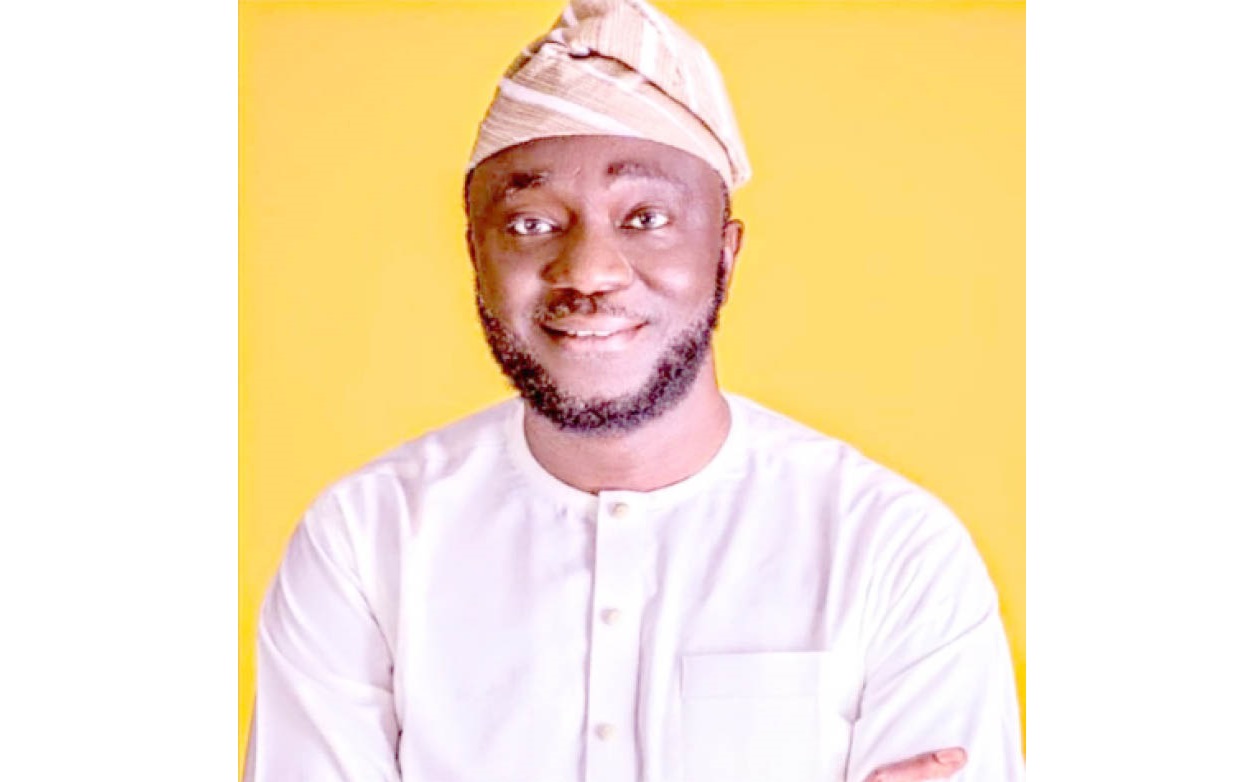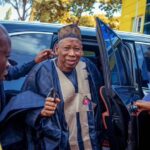Abiodun Oni is the executive chairman of the Oyo State Mineral Development Agency. Prior to his appointment in 2019, he had led some projects involving Exxon Mobil. He had also been a country manager for General Electric in Canada. In this interview, he discussed the activities of his agency, vis-a-vis the growing concerns in the country about fiscal federalism. He also discussed measures being put in place by his agency to check illegal mining in the state.
Recently, there were reports of the activities of some foreigners trading in gemstones at the moribund Stratabag Company complex in Ojoo; is the government aware of this?
The government is aware, but the real issue is that we don’t get enough revenue from what people are doing there. And what can the government do when the law of the land allows buying and selling, as well as the issuance of licences, which most of them operate with. No law stipulates the amount of money those who buy and sell would give to the state. Money goes to the federal government.
If we close down the market, it is of no benefit to the Oyo State Government. They are cutting and polishing stones in Ayete, Ibarapa North Local Government Area. To me, the comparative advantage of what they are not paying to the state government could be the benefit such investors provide to the community. There is a big factory there. The only responsibility they have for the government is to pay royalties to the federal government. One way or another, these businesses are protected, so the state government has to make it a relationship thing.
Yes, you can talk about taxes, but you cannot compare the royalties in a properly structured federal system. As we speak, if you visit the market you would discover that whoever is selling has a licence. Those buying have licences too. The licences were issued by the federal government. So we are cut out of the deal. That is the law.
The way out is for the state government to have a relationship with the people to let them know that it is not fair to take such a quantum of resources from Oyo without giving back to the state. However, the state can look at the environmental issues in the market and attempt to enforce some rules and regulations.
Some people may be of the opinion that the place should be shut, but of what benefit is that to anyone? Is closing down the place going to give us any revenue? But what can we do? One of the ways we are attempting to circumvent the challenges is to engage. The governor has consistently made it clear that he prefers the outright removal of solid minerals from the exclusive list. These people you are talking about have paid royalties to the federal government. All we get is 13 per cent. But the major issue is: 13 per cent of what? Imagine getting 13 per cent of N100,000. It is ridiculous! That is why we believe that we need to be part of the process. But one of the major ways we are trying to right the wrong is to engage and create a sustainable paradigm that would not make the state government lose.
There is an allegation that some officials of the agency receive bribes from some of the foreigners who operate there; what are you doing about it?
That is not true. We cannot exert authority on a market we don’t have control over.
What are you doing to involve traditional rulers? This is because it is said that some of them invite foreigners to man their mining sites for them; hence contributing to security challenges facing the state?
We have a quarterly schedule of engagement with stakeholders. When I say stakeholders I mean traditional rulers, including baales and other important people in the mining sector and those localities. One of our innovations is to give an award to anyone who gives us the best intelligence among them. This is important because anytime we visit mining sites we discover new things. We are always with the traditional rulers. They are the first and last people we go to because it is their domain.
We know there are Nigerians who are bringing these illegal miners into the country, and that is the reason we need to partner with the traditional rulers. We want to legalise mining in such a way that it does not pose the type of dangers associated with it. It is difficult to fight them, so we want to put a mechanism in place to make it legal. We want to formalise what they are doing. It is difficult to get records of those people as it is today. We are trying to get them registered.
When you came on board, were there things you met on the ground that suggested the way forward?
I don’t like talking about the previous administration because the government is a continuum. I think that by the time we are leaving this place, those coming behind us must have reason to appreciate us because we must have scaled up. When I came on board, they only spent N25million on the solid mineral project in eight years. That means they didn’t do much in that area. My predecessors may have started well, but I don’t know what happened at some point. But we won’t be derailed. We are going to do a lot before we leave.
What about the law hampering your efforts?
We are going to find a way out. Certain mechanisms are being put in place to ensure that we achieve our dreams in that regard. All those things will stop happening and the state will begin to benefit. In addition, the federal government has said the state can have Special Purpose Vehicles (SPV) to do the business of mining, yet the state cannot do it on its own. We have a company known as Pacesetter Mineral Development Company (PMDC), which will be doing the business of mining. If we are allowed to issue licences we won’t need to go into the business. But now, we don’t have a choice than to look for money and buy equipment to lease to miners and begin to do the business.
Now that states are short of funds, how do you intend to achieve this?
We have to look for investors. We may need to give credit. And don’t forget that we are going to make money from leasing equipment to miners. It won’t be the state government but the Pacesetter Mineral Development Agency that will be dealing with that.
What have you been able to achieve since you assumed office?
Since we assumed office we have created a roadmap that would lead us to get things done in phases. We have a four-year plan to achieve our roadmap. Currently, we are strategising and trying to tip-toe in the existing law of mining, which places enormous control in the hands of the federal government. The law makes us incapacitated. If we are not creative and innovative we would not have been able to achieve anything. But we are working hard to make sure that we get the best of what we have, as it were, else we won’t achieve anything.
One of the major parts of what we are doing is data gathering, which we have been able to do in a short period of time since we assumed office. It is a huge investment. We have been lucky to have a very good team to put the data together.
Also, in Oyo State, we are blessed with huge resources. It is a pointer for me because if somebody is able to invest a billion naira in Oyo State, that means there must be something in return for such a person. With the data we are talking about, we have also been able to tell the world about precious stone deposits in the state. Without that, we won’t be able to attract investors because you cannot sell what you don’t know, in terms of availability, and you cannot buy what you cannot access. So we are able to get this data gathering with the support of professionals because of the efforts of the governor and his team.
This is an encouraging pointer for our people to partner with the Oyo State Government, with a view to taking the mining sector to a profitable height. Mining is like a big ship that wants to turn. It will take a while. The incubation period for mining is long, but we are all in a hurry to get its benefits. It is not working that way and it is not going to work in that way. You need to break an egg before you get the yoke. It is not achievable overnight, but it has a process. I don’t think we have any mine in Nigeria that has a one-kilometre depth. So we need to give more time to achieve our roadmap.
You said the law was in favour of the federal government; is there any collaboration between your agency and them?
We have a very good relationship with the federal government. We have a minister who understands the terrain of Oyo State. We have been working together on how to develop our mining sector. As we speak, I am leaving Ibadan today for Abuja to further discuss how to make the sector more viable in Oyo State. You know the minister has been here a couple of times on courtesy visits to the governor. As part of our collaborative efforts, we have handed over two acres of land to the federal government for the construction of an international gemstone market. I understand they are almost done with the design of the market.
The idea is to formalise this market. We want a situation where every stakeholder in the process will benefit from the market.

 Join Daily Trust WhatsApp Community For Quick Access To News and Happenings Around You.
Join Daily Trust WhatsApp Community For Quick Access To News and Happenings Around You.


